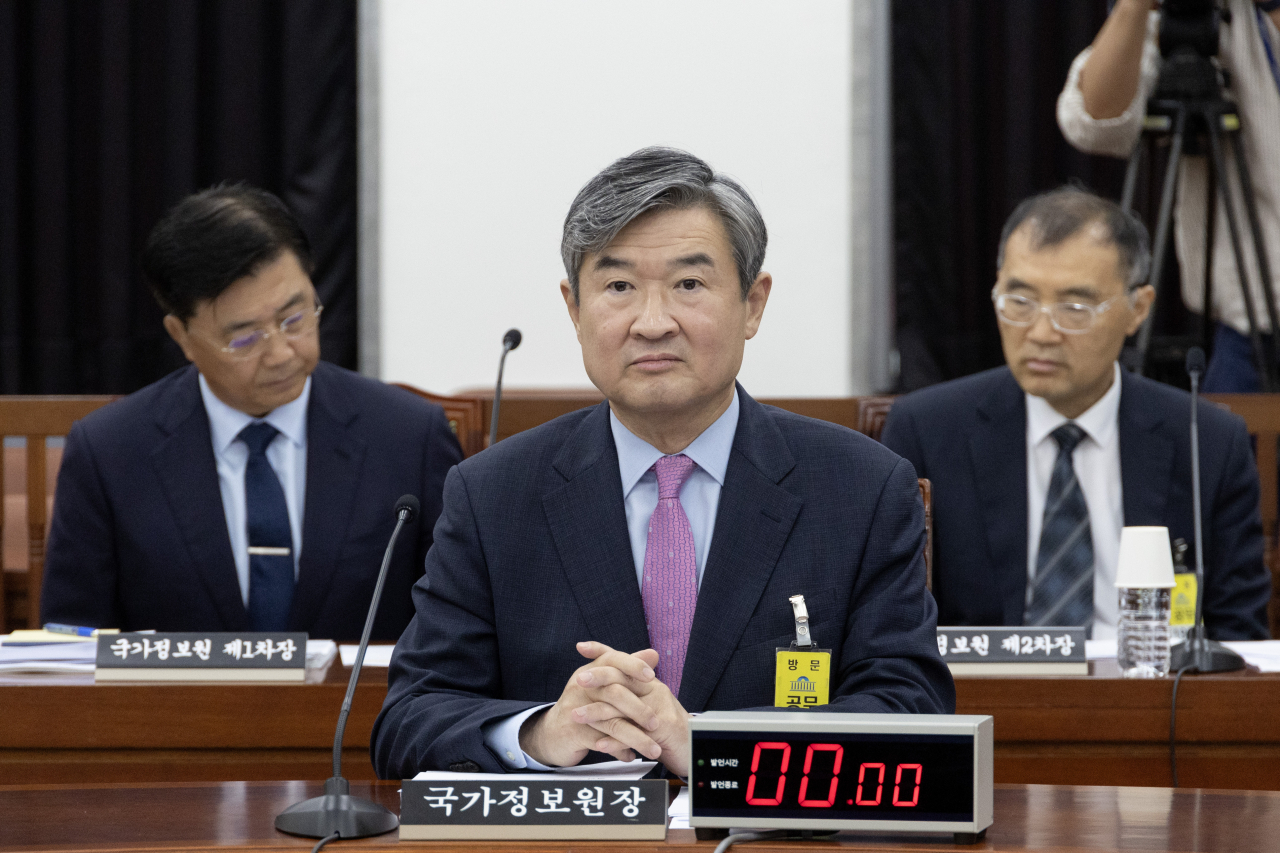 |
Cho Tae-yong, the director of the National Intelligence Service, attends the meeting of the National Assembly intelligence committee on Monday. (Yonhap) |
South Korea’s spy service believes North Korea’s new tactical ballistic missile launchers unveiled earlier this month may be capable of reaching as far as central South Korea, in the North and South Chungcheong provinces.
Cho Tae-yong, the director of the National Intelligence Service, briefed lawmakers on Monday that some 110 kilometers south of the inter-Korean border would be within reach of possible attacks by the North Korean missile launchers.
The two vice chairs of the National Assembly intelligence committee -- Reps. Seong-kweun and Park Sun-won -- told reporters that the NIS director was unsure if North Korea would be capable of producing missiles to be used with the launchers, given that much of its weapons are meant for supplies to Russia.
According to the North Korean state media on Aug. 5, its leader Kim Jong-un oversaw the delivery of the missile launchers to the border with South Korea in a ceremony held the day prior.
The state media reported that Kim deemed the display of the missile launchers on the front lines was the first stage of the expanding missile force program for the border units of the North Korean military.
The Assembly intelligence committee vice chairs said the NIS director told them the North Korean leader’s public moves since the severe flooding have all taken place in Pyongan area, the home province of its capital Pyongyang.
Kim made visits to parts of the province surrounding Pyongyang and invited residents affected by the flooding to the capital, in what appears to be an effort to build trust in his regime, the NIS director was cited as telling lawmakers.
By contrast, the North Korean media shunned mentions of Chagang Province bordering China, which was most heavily hit by the flooding.
The NIS director said this was believed to be intended to keep Chagang Province, home to many military facilities, from being exposed to the outside world.



![[Herald Interview] 'Trump will use tariffs as first line of defense for American manufacturing'](http://res.heraldm.com/phpwas/restmb_idxmake.php?idx=644&simg=/content/image/2024/11/26/20241126050017_0.jpg)

![[Health and care] Getting cancer young: Why cancer isn’t just an older person’s battle](http://res.heraldm.com/phpwas/restmb_idxmake.php?idx=644&simg=/content/image/2024/11/26/20241126050043_0.jpg)

